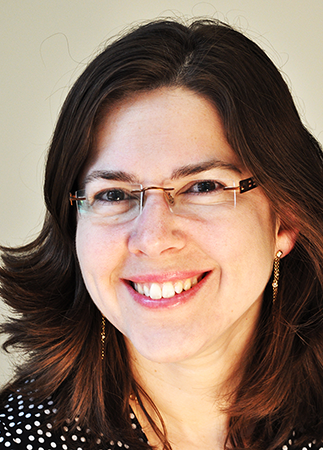Ella Striem-Amit, an assistant professor of neuroscience at the Georgetown University Medical Center received the Young Investigator Award from the Cognitive Neuroscience Society (CSN) earlier this month.
This award acknowledges emerging neuroscientists in the early stages of their careers who have made exceptional contributions to the field of cognitive neuroscience. Striem-Amit leads the Sensory and Motor Plasticity (SAMP) Lab, and her research includes brain plasticity and reorganization, or how the brain adapts to changes. One of her research projects focuses on how people with dysplasia, people born without their upper limbs, are able to complete tasks with their feet or other parts of their body by examining the organization of their brains.
“They can do anything that we can do with our hands,” Striem-Amit told The Hoya. “They just do it with their feet. In terms of brain organization, what we’re seeing is that a lot of the brain structures that are used to operate our hands are used to operate their feet.”
Flo Martinez Addiego (GRD ’25), a PhD student in Striem-Amit’s lab, is working on the neuroplasticity and reorganization project. According to Martinez Addiego, their research on individuals with dysplasia has revealed that for many motor activities, the brain is organized by task rather than by the limb performing the task.
“You have an area of your brain that just cares that you are writing and doesn’t care if you are writing with your hand or with your foot,” Martinez Addiego told The Hoya.
According to Striem-Amit, the motivation behind her research is to use the knowledge of neuroplasticity to improve the functionality of brain-machine interfaces and prosthetic devices, such as those that make using devices more natural.
“We don’t have to open and close a prosthetic. We don’t have to think of how long we want it to be closed. We don’t have to be conscious of all those parameters,” Striem-Amit said. “The fact that current prosthesis requires such conscious control makes them harder to use.”
While Striem-Amit said the prospect of improved prosthetics is exciting, it is important to emphasize there is still a long way to go in terms of technological advancements.
“I want to always make it very clear that I can’t promise cures or prosthetics at the moment,” Striem-Amit said. “This is where we want to go, but we’re not there yet.”

In addition to her work with individuals with dysplasia, Striem-Amit is currently working on a research project on individual differences in blindness.
Martinez Addiego believes Striem-Amit’s exploration of multiple manifestations of neuroplasticity makes her research particularly unique.
“Ella does a lot of innovative work,” Martinez Addiego said. “Usually when you have somebody who is a principal investigator they focus on a particular topic. Ella is kind of unique in that she’s decided to study plasticity and plasticity applies to a bunch of different cognitive realms.”
Lénia Amaral, a postdoctoral researcher in the SAMP lab, said she is motivated by working alongside Striem-Amit and is inspired by her career path.
“Dr. Striem-Amit serves as an inspiring example of a highly accomplished female researcher in academia,” Amaral wrote to The Hoya. “Her impressive track record includes numerous publications, multiple awards, and the notable achievement of establishing her own laboratory shortly after completing her postdoctoral research. Observing her success has reinforced my aspiration to follow a similar trajectory.”
According to Striem-Amit, the CSN is a community that is very important to her and this accolade plays a crucial role in her recognition as a neuroscientist.
“A lot of the past awardees are really key people in the field so it’s really an honor to receive that,” Striem-Amit said. “Some of my personal role models received the awards in past years.”
Striem-Amit spreads her gratitude for the award to all those who supported her.
“I express my thanks to the CNS community – the committee, my nominators, and so many great mentors, colleagues, collaborators and participants who made our work possible,” Striem-Amit wrote to The Hoya.
Striem-Amit encourages aspiring neuroscientists to take a moment to step back and enjoy the process, while also always pushing for greater understanding of preexisting research.
“I would encourage them to not forget to have fun along the way,” Striem-Amit said. “Don’t be afraid to reopen or question consensus ideas because it’s always worthwhile.”









